Somehow, the Sokpop Collective has released two games a month for two years
An infinite game jam.
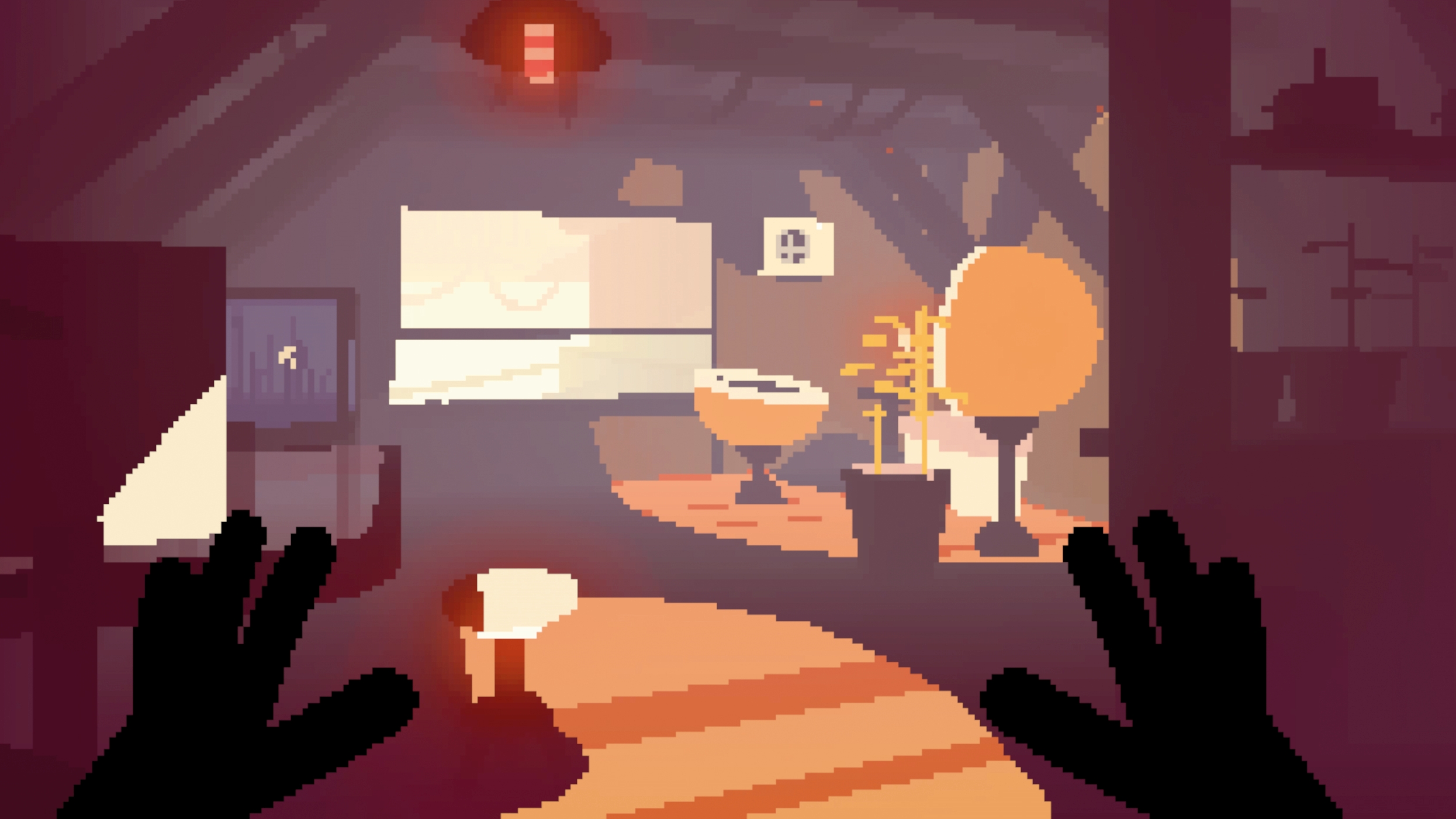
This article was originally published is issue 342 of PC Gamer magazine. For more quality articles about all things PC gaming, you can subscribe now in the UK and the US.
Every fortnight, a visit to Sokpop's Itch page—and more recently its Steam page—usually guarantees a new treat. Maybe you'll drive through the rain to hunt down bounties in Blue Drifter, explore a pink sky castle in Labyrinth or spend an hour solving puzzles Pear Quest's little island. In two years, Sokpop has released more than 50 games, and it shows no signs of slowing down.
Aran Koning, Ruben Naus, Tom van den Boogaart and Tijmen Tio met around five years ago when they started doing a lot of game jams together, like the online game jam, Ludum Dare. When there wasn't a formal game jam to go to, they'd jam at home. Game jams always come to an abrupt end, but they wanted to keep it going. The collective grew from that, leading the four of them to embark on what's become an infinite game jam. But they rarely work together.
"We basically never collaborate," says Koning. At the time of writing, they've released 54 games, though that number will already be out of date when you read it. Only a couple of games in this rapidly growing collection were collaborative projects. So it's a collective of individuals, all equal within the studio, but always following their own ideas and going off to experiment solo.
This contributes to the incredible range of Sokpop's massive back catalogue. There are cute sandboxes, puzzlers, management games, racing games—and the themes and art styles are just as varied as the genres. A great deal of them fall into the category of 'wholesome' games, some more overtly than others, but otherwise it's remarkable how deftly the foursome avoids repeating itself.
"I think we all try to make innovative titles in one way or another," says Naus. "We don't want to just make Call of Duty or something. We always have a pretty unique idea for every game. Nobody is like 'I'll just make a platformer.' There's always one cool idea, mechanic or even art style that's unique to that game."
"Something that might not work, but is still cool to try out," Van den Boogaart says. For him, nostalgia plays a big role in the games he develops. "I tend to recreate games I played as a kid," he says. "Five of my games are games I played as a kid. It feels a bit more personal." Alongside his smaller games, Van den Boogaart is also working on a larger follow-up to Bernband, a strangely comforting game about getting a bit lost in an alien city. It's an aimless labyrinth, but around every corner some kind of sci-fi curiosity.
Keep up to date with the most important stories and the best deals, as picked by the PC Gamer team.
Naus, whose games include Sok-Stories, an accessible game creation tool, and Soko Loco, the cute pixel art train tycoon, has a lot of concepts cooking away at once. "I have a lot of ideas that are in the oven, and when they're done, I pick the one I think I have the most clear vision for. I think about the games for pretty long in the background, and when an idea comes to fruition, I pick that one."
For Koning and Tio, however, it changes all the time. It could be a game based on a movie, on another game, or an experiment to try out a new mechanic or experience. That goes for most of the collective's games, though, which constantly bounce around. But whatever they decide to make, there's always a looming deadline.

Sokpop runs a Patreon that gives subscribers two games a month for $3, instead of the $3 each they normally cost. It's approaching 1,300 patrons now, earning the studio just over $4,587 a month. The deadline informs the scope of most Sokpop games, which is why they're typically bite-sized.
"That definitely influences my ideas," says Koning. "This is roughly what I can do in four weeks."
"We really struggle with deadlines," adds Van den Boogaart, laughing.
The Patreon ensures they finish their games, however, because normally they wouldn't. "Now we have to," says Tio. "So we did it on purpose. When you have a deadline, you just have to do it. It doesn't really matter if it doesn't work out, because all the patrons and fans know that if the game is released in two weeks, it might not be the best game."
It sounds like a lot of pressure, especially keeping it going for more than two years, but this is where doing solo projects works in their favour. They each take turns, so every developer has a two month gap between games. That's still intimidatingly close, but significantly more than you'd get in a game jam. Sometimes ideas get scrapped and delays happen, but there's not nearly as much room for either as there is in conventional game development, where delays of months or years are common, and the cutting room floor is full of discarded ideas.
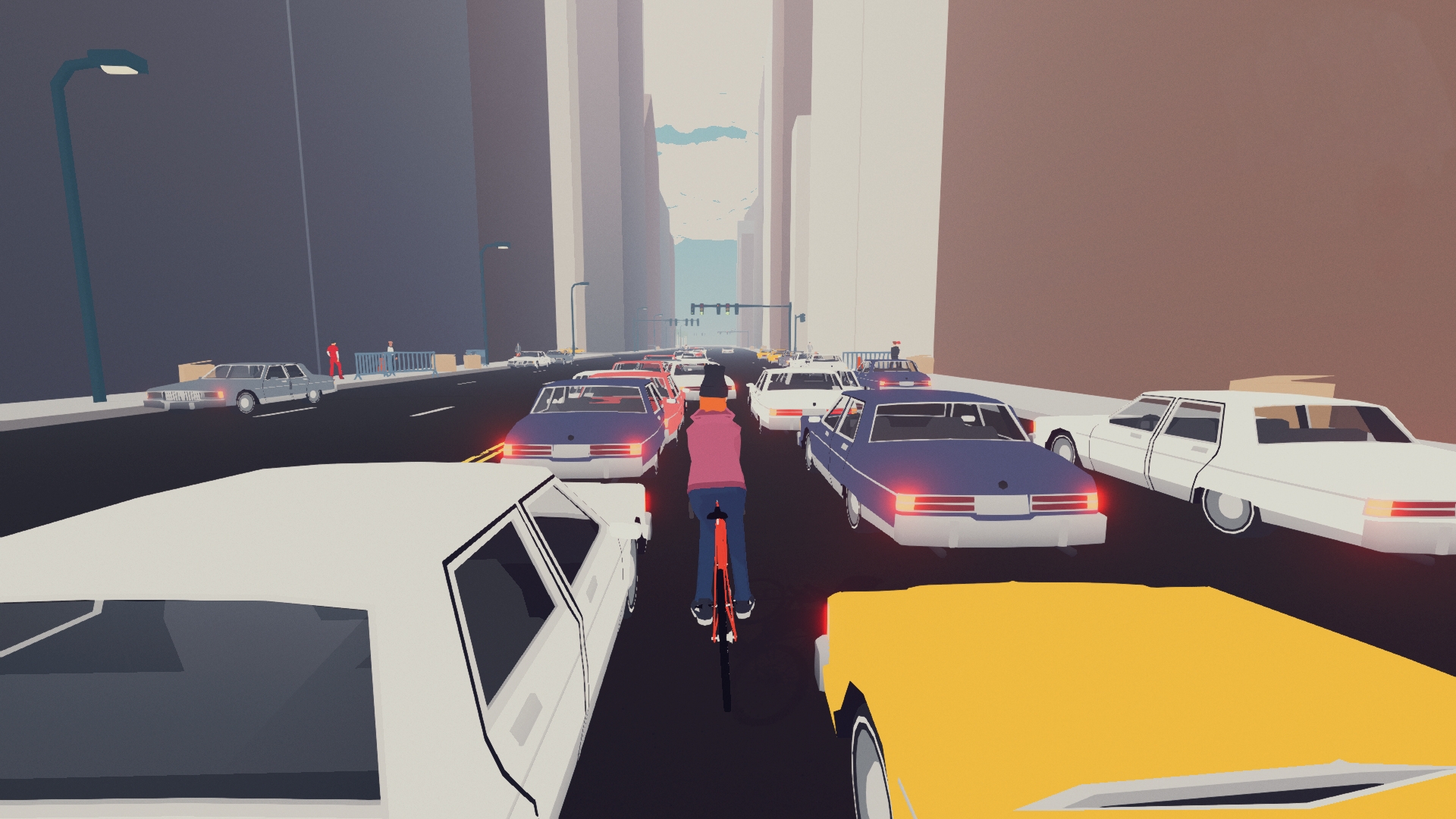
These self-imposed limits and deadlines actually free up Sokpop to pursue weird ideas and just stick with them. They don't always work, but when a game doesn't quite come together, there's always another one coming in a fortnight. It keeps patrons and players stocked up on games, while Sokpop can quickly move onto something new or iterate on older ideas that have the potential to be developed further.
Between the smaller games, each developer is working on a larger project. Tio made a new, larger version of Simmiland, a card-based god game; Naus recently released a 'Deluxe' version of his train tycoon game, Soko Loco; and Koning is making a more ambitious version of Skidlocked, the urban biking game. They work on their smaller game for four weeks, then they switch to the bigger one.
"The big projects don't usually go that fast, at least not as fast as you'd expect from a regular studio, because we also have to make a new game every two weeks," says Koning. "That's the trade-off."
Since the smaller games are the ones with the deadline, the others do end up taking a backseat. And after getting so used to always having something new to create, it can be a bit dispiriting to return to something they've been tinkering away on. "It's pretty hard to combine them," says Naus, adding that he's always ready to move onto something new. They've all got the itch. And it's also what the collective has become known for. The cavalcade of novel ideas, playful experiments and cute diversions has become its brand.
Many of Sokpop's creations have an endearing quality that make them very gifable, so they found a home on Twitter. A community has also sprouted up in the wake of the Patreon, so every game is guaranteed players and feedback. It's not until pretty far into a game's development that anyone can really know if it's going to resonate with people, but Sokpop doesn't have to worry about that.
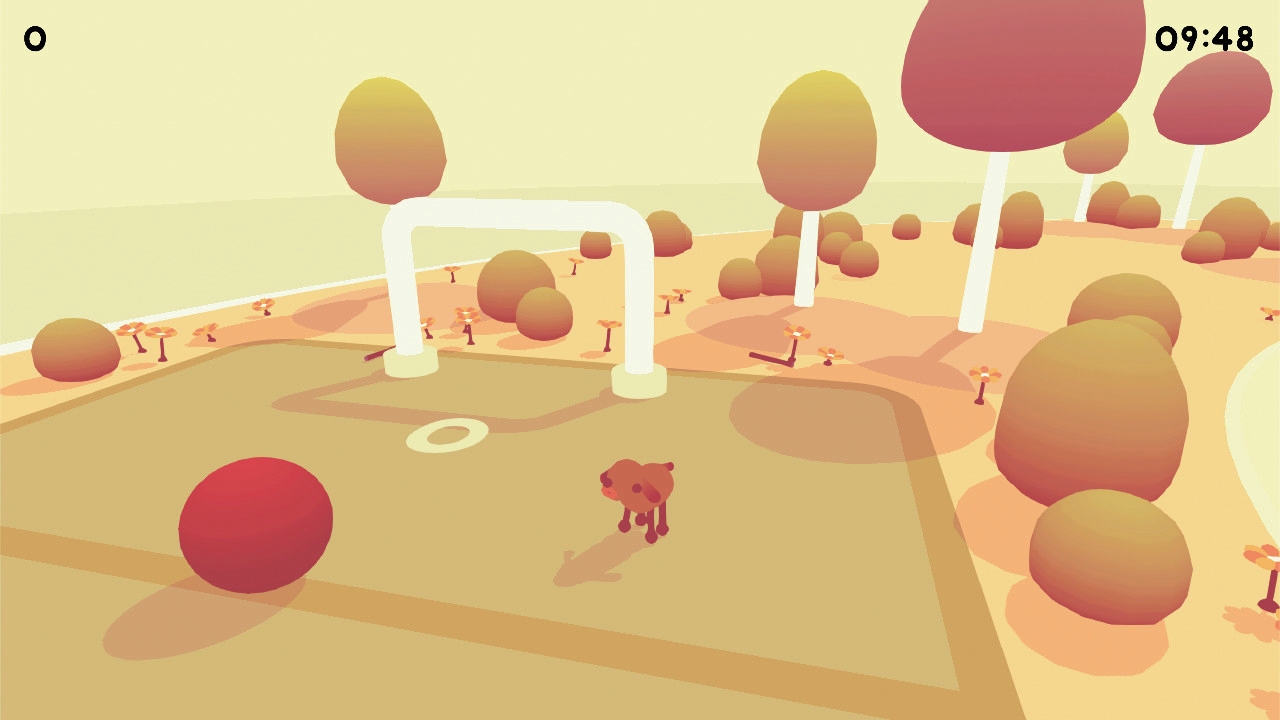
"Whatever game we release, there's an audience for it," Koning says. There's always at least one of our patrons who's like, 'This is my new favourite game' for every game, and it's super fun to have that many people playing all these smaller games."
With the Patreon now in its third year, the developers are still enthusiastic about the platform, though they've been surprised to see it keep growing. It was a gamble, with none of them knowing if it was going to last for a month or a year, but now they've got nothing stopping them from carrying on for the foreseeable future.
"I feel like we could do this for a long time," says Tio. "It feels like a dream, making small, experimental games. It could be anything. Right now, the next game is the one I'm releasing, and it's a text adventure MMO. I think it's kinda weird, so I'm really excited to see people play it. The most fun thing about making games: watching people play with it and seeing their experiences. Now when we make something, we know for sure a few hundred people will play it, and we'll get to talk to a bunch of them in the Discord."
Patreon effectively lets Sokpop run a game subscription service without needing to worry about processing payments or the platform itself; with the increasingly popularity of the subscription model, it seems well-timed. While Sokpop isn't averse to its games appearing on other platforms, like Apple Arcade or Humble Monthly, it offers something quite different from the norm. Every game patrons get from Sokpop is brand new and, with their small scope, won't contribute to the dreaded backlog. Well, not too much.
"We might be making too many games actually," says Tio, "even for our fans."
Every year, Sokpop decides if it's going to keep doing the Patreon for another year, or if it maybe wants to shake things up. It's going to continue throughout 2020, and then it will be evaluated again. "But the chances are we'll keep doing it," says Tio. That's not to say the collective isn't making other changes. In January, it released around 50 games on Steam in a single day.
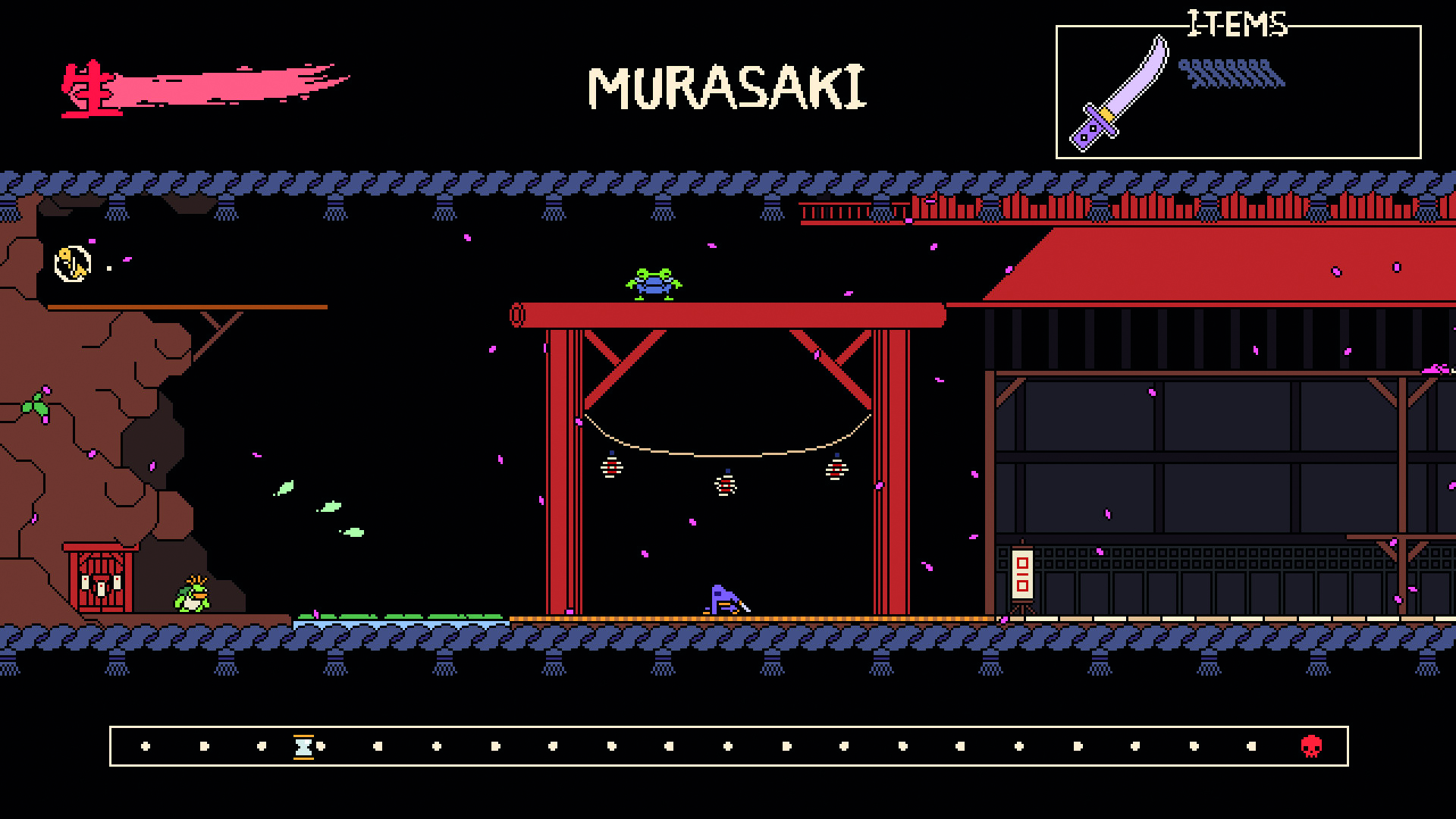
"We had this huge backlog of games that we'd made over the last two years. I think we started looking into it last year," recalls Koning. "We thought maybe we should bring these games to Steam because there's a bigger audience there, and we figured it was something cool we could for our patrons, so they could have Steam keys for our games. But then the process took a long time because we were trying to catch up with putting these games on Steam while still making new ones. It took quite a lot of work to make sure it was properly caught up."
"We're still missing one game," Tio adds. "Actually, two, because by that time I'll have another one." Despite groaning at the realisation that they've got more catching up to do, the four of them are pleased with the Steam launch. In a week, Sokpop's gross revenue was half of what it's made on Itch since it started. But they're very different platforms with different benefits.
Steam has the numbers, of course, but there's also a lot more competition, as well as the dreaded algorithm to contend with. Most developers are in the same boat, but releasing 50 games at once also put Sokpop at a disadvantage. There was no build-up or opportunity to get on people's wish lists, and with so many games dropping at once, none of them got a big enough launch spike to get a coveted spot on the 'New and Trending' list.
Itch, meanwhile, doesn't generate as many sales, but Sokpop games are more likely to be featured on its front page, while the audience is more open to the collective's style.
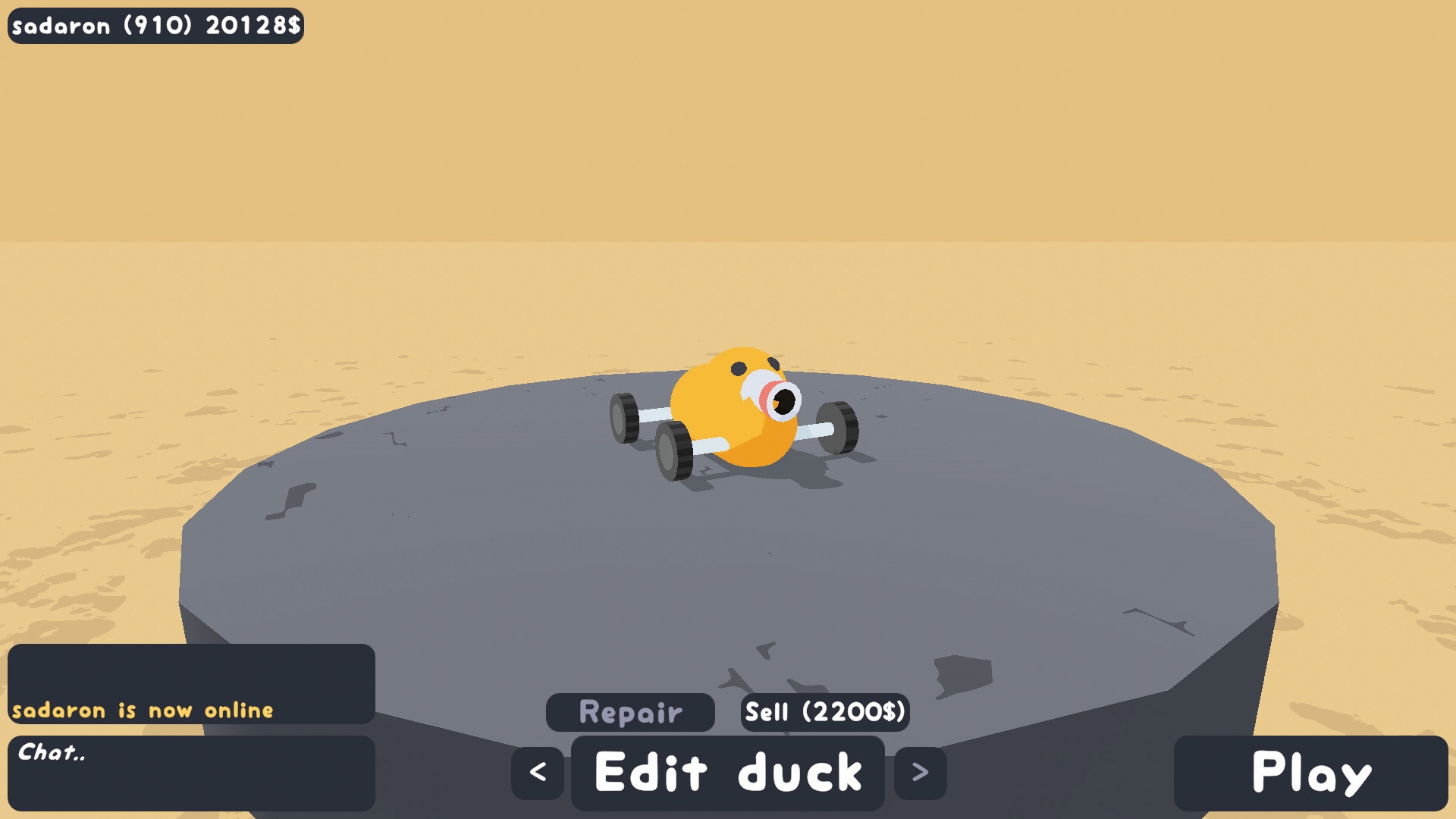
"I think people on Steam were like, 'It was cool, but I finished in half an hour, so why did I pay $3?'," says Naus. "Nobody complains about that on Itch. The audiences are different, but Steam was a logical next step for us. Steam just has so much more traffic, and I think there are still people interested in these kinds of games."
Beyond Steam, the collective's considering releasing a game on consoles, and even working with publishers, though probably not for the small games. "We want to have that separate and be our own thing where we have the freedom to do what we want," says Koning, "while the publisher helps us in marketing the bigger games."
However it grows, the Patreon and its wildly diverse mountain of diminutive experiments seems to be what the collective is proudest of, and hopefully the tiny surprises will continue for many more years. "Games are too long" is an increasingly common refrain, so being able to browse a massive list of games where most of them can be enjoyed in the time it takes to download the latest Call of Duty update is a real treat.
"It's also a really steady source of income," says Naus. "So unless everyone makes a big hit, we kinda have to keep doing it."
Here are a few of our favourite Sokpop games from the collective's massive library.
Bernband
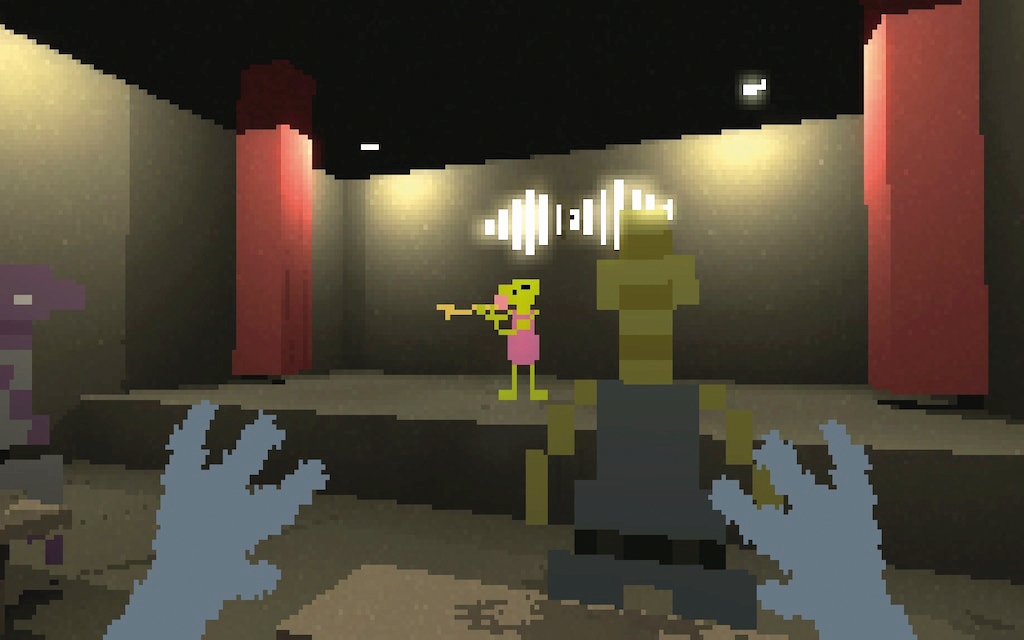
An explore-em-up set in a moody alien city, Bernband is a joy to get lost in. It's a pure walking sim, in that it's all you do. You can walk under flying cars, hit up an alien nightclub and experience a snapshot of alien life. The 2014 original is free, and a new one has been in development for a while.
Fishy
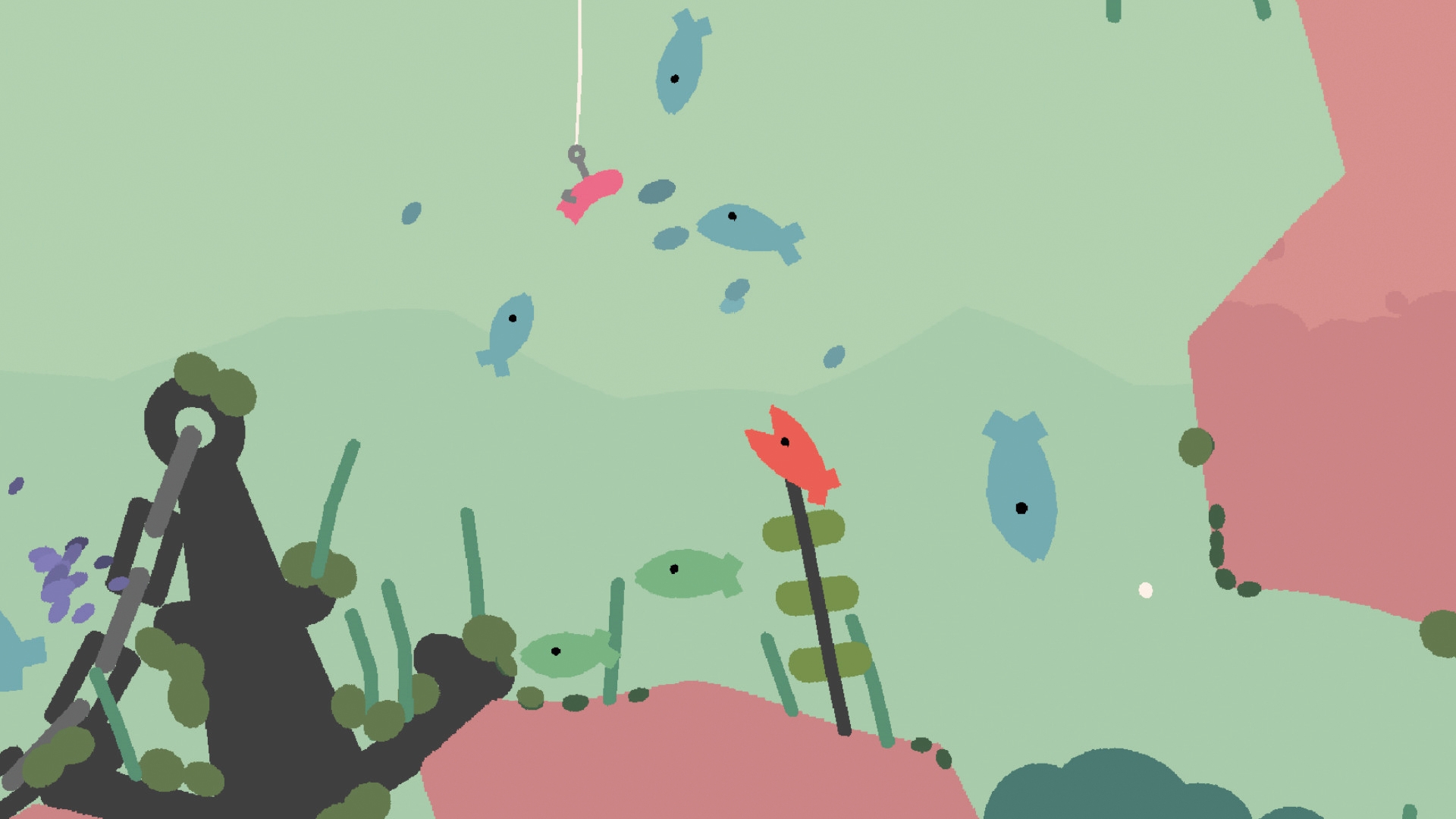
You play as a little fish who gets flushed down the toilet and into a pond thriving with creatures and plants. You're super hungry so you start eating small plants. As you eat more you grow bigger and then you can eat bigger things. Explore the pond's micro water world and maybe you can even escape.
Doler
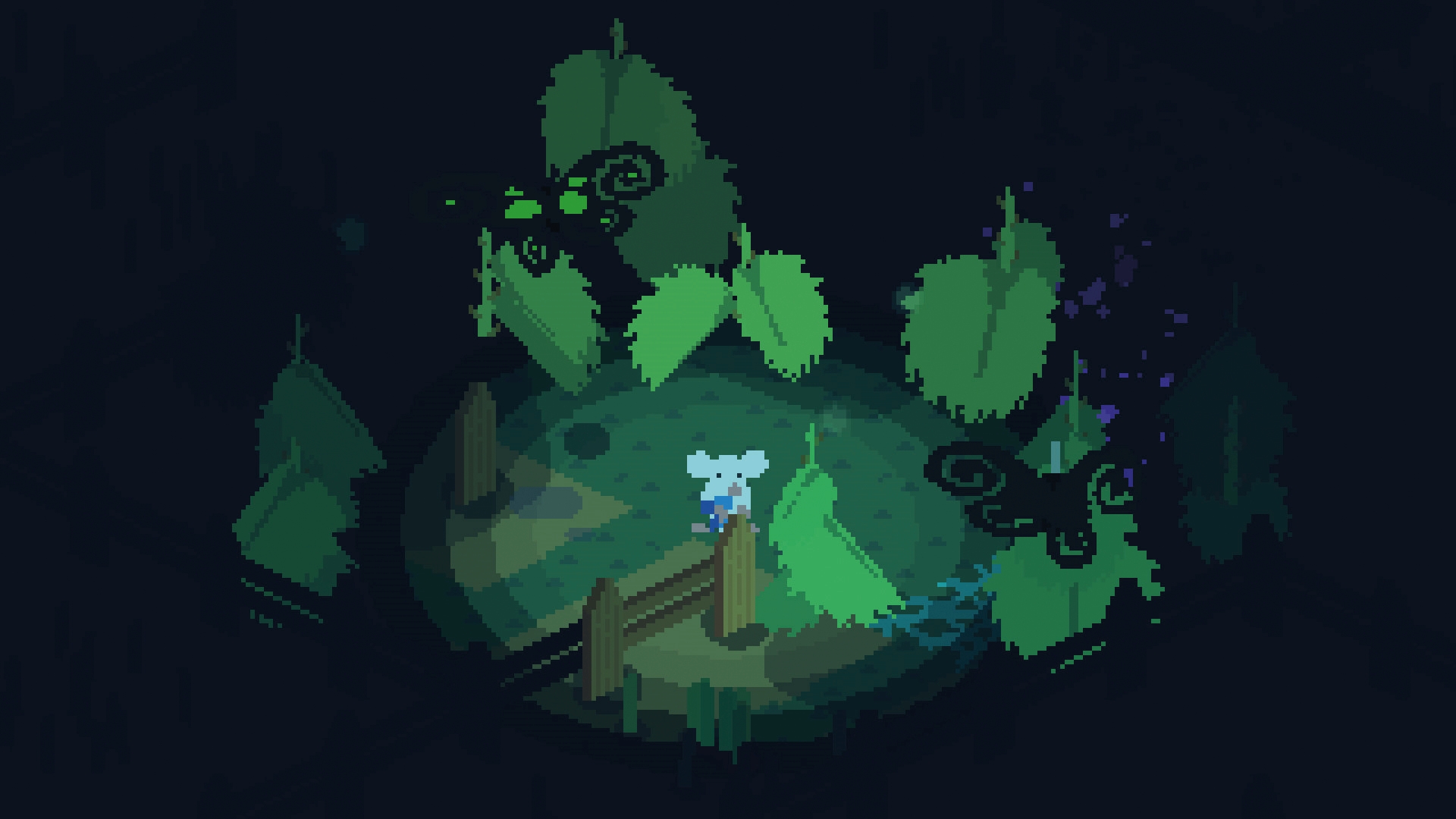
You are a mouse trapped in a spooky, swampy maze and your goal is to find the exit somewhere in the darkness. Collect items that help you against foes and eat crumbs to stay alive. You can also leave little poops with notes like 'not this way' to help your fellow mouse/player in need.
Simmiland
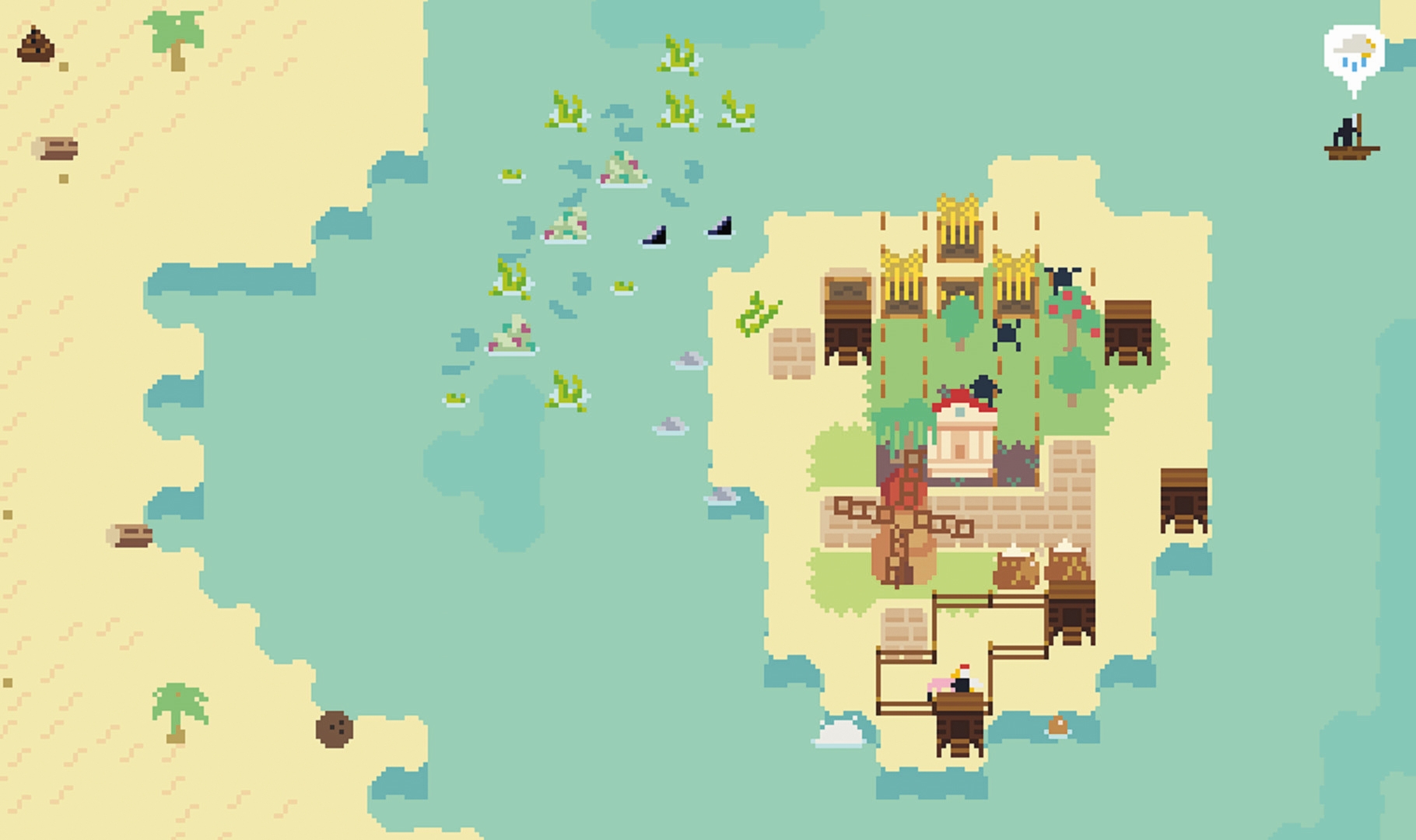
Nurture a civilisation with your fancy divine powers and your magical deck of cards. In Simmiland, you're a god and CCG enthusiast, building up a deck of miracles that you can use to indirectly influence your little humans. You can play through human history in an afternoon.
Pupper Park
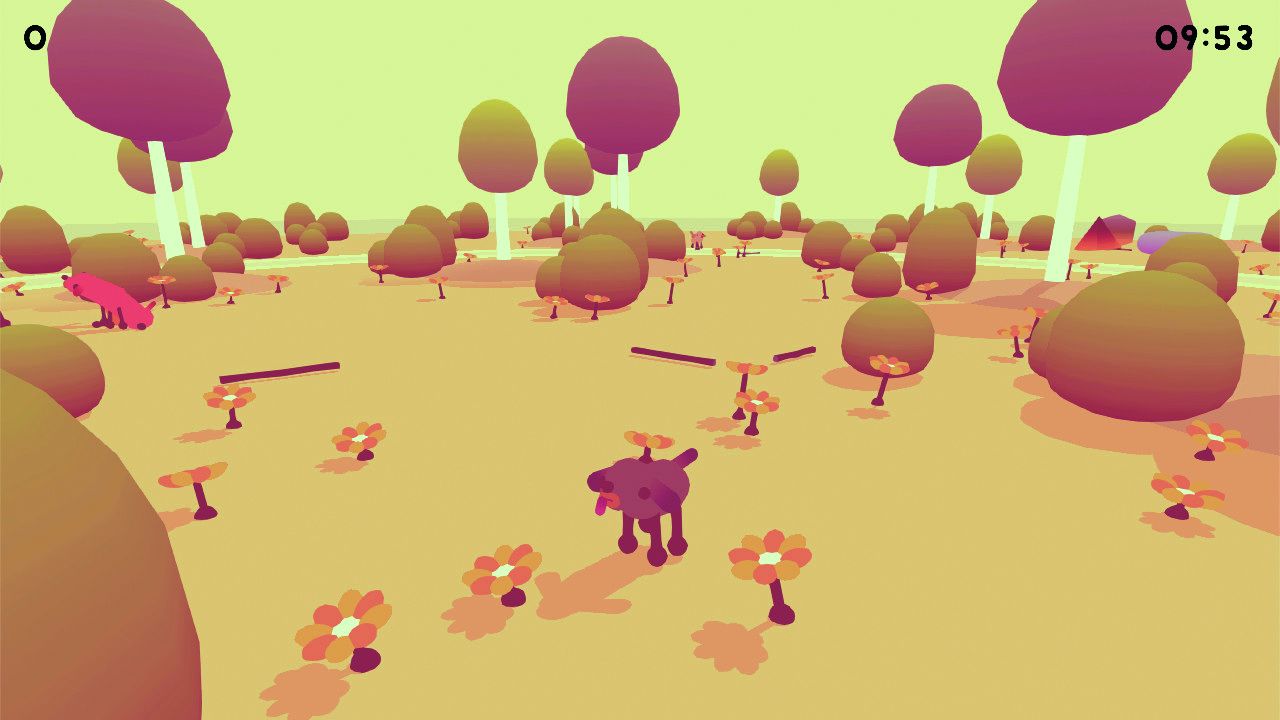
You're a bendy dog let loose for ten minutes to wrestle sticks away from other dogs, drag frogs out of the pond, and play basketball. There are bones to find, but mostly you woof about while the human who threw a ball minutes ago looks on bewildered. The authentic dog park experience.
Kart Kids
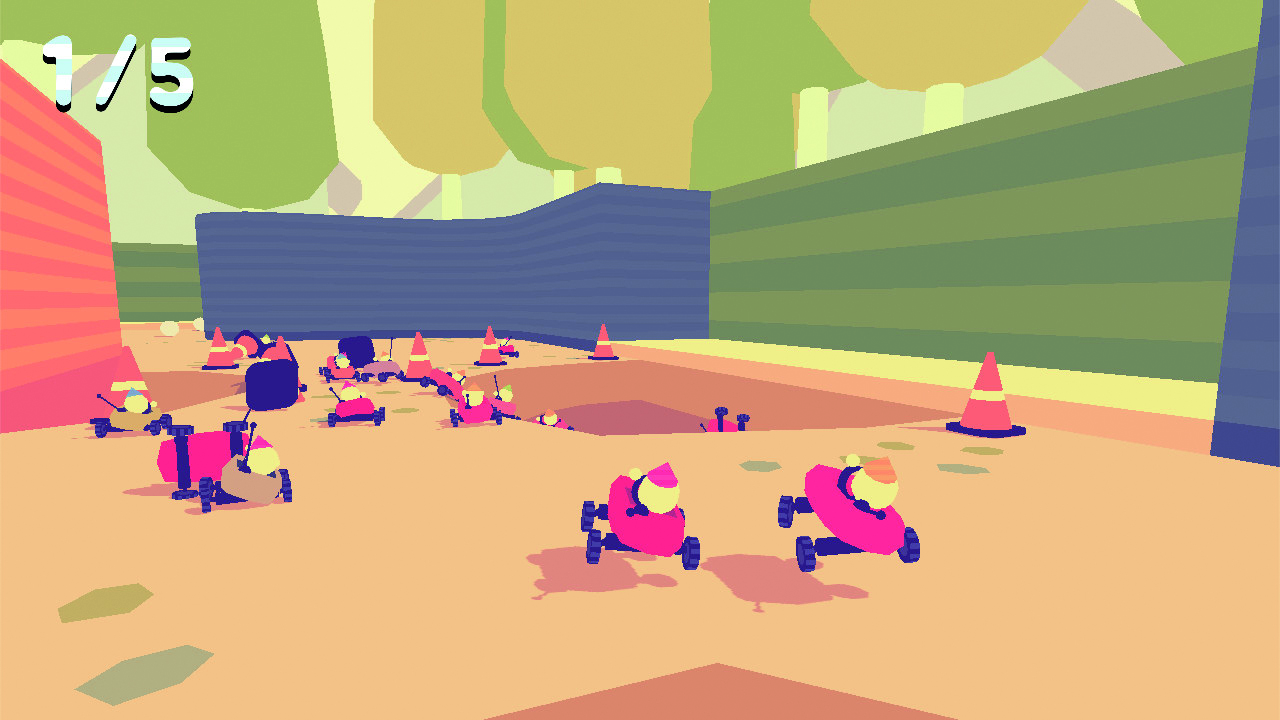
Kart Kids is the anti-Mario Kart, with only one track, wobble-arse suspension, and a horn like a clown being punched in the nose. There are no power-ups or rainbow roads, just orange witches' hats and a pipe. Somewhere a dog barks like this is all happening on a vacant suburban lot and is very illegal.
Pear Quest
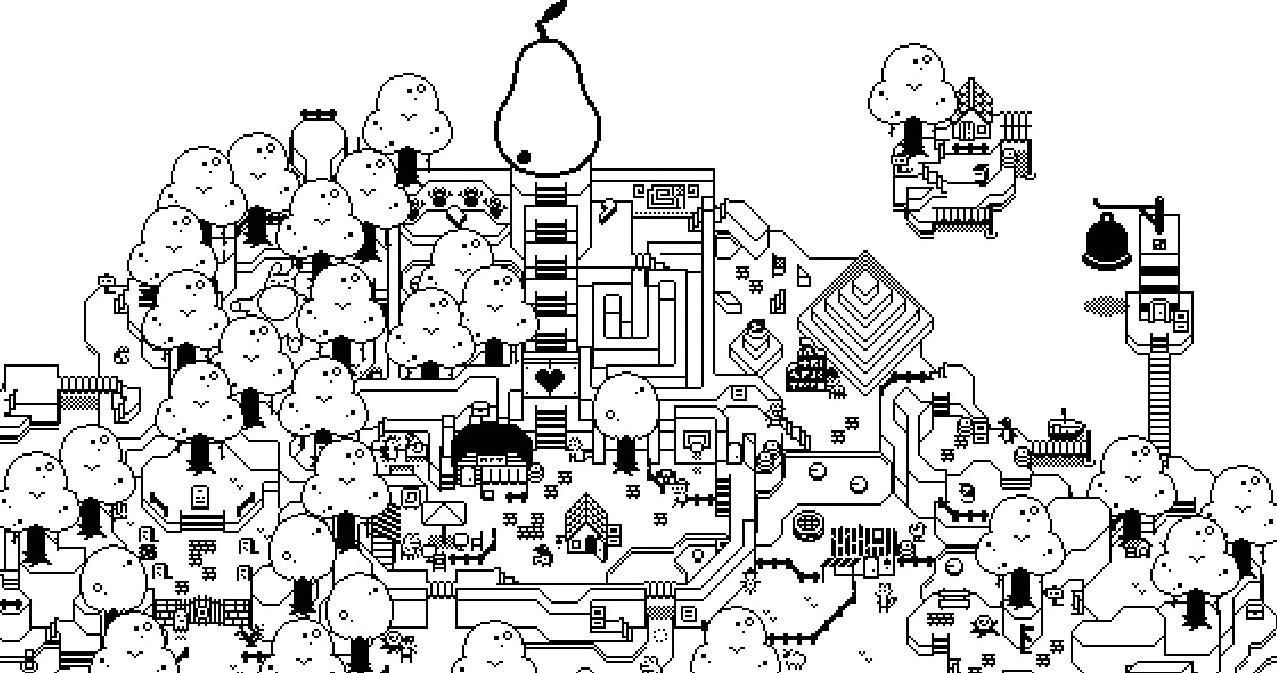
A pixely puzzler, Pear Quest is set on a tiny island that's dominated by a giant pear—your goal. It's a busy little place, with 20 peculiar characters bouncing around and plenty of obstacles getting in your way. There are hints of Minit, though it's not quite as tricky—unless you count the challenge of reading the tiny text.
Brume
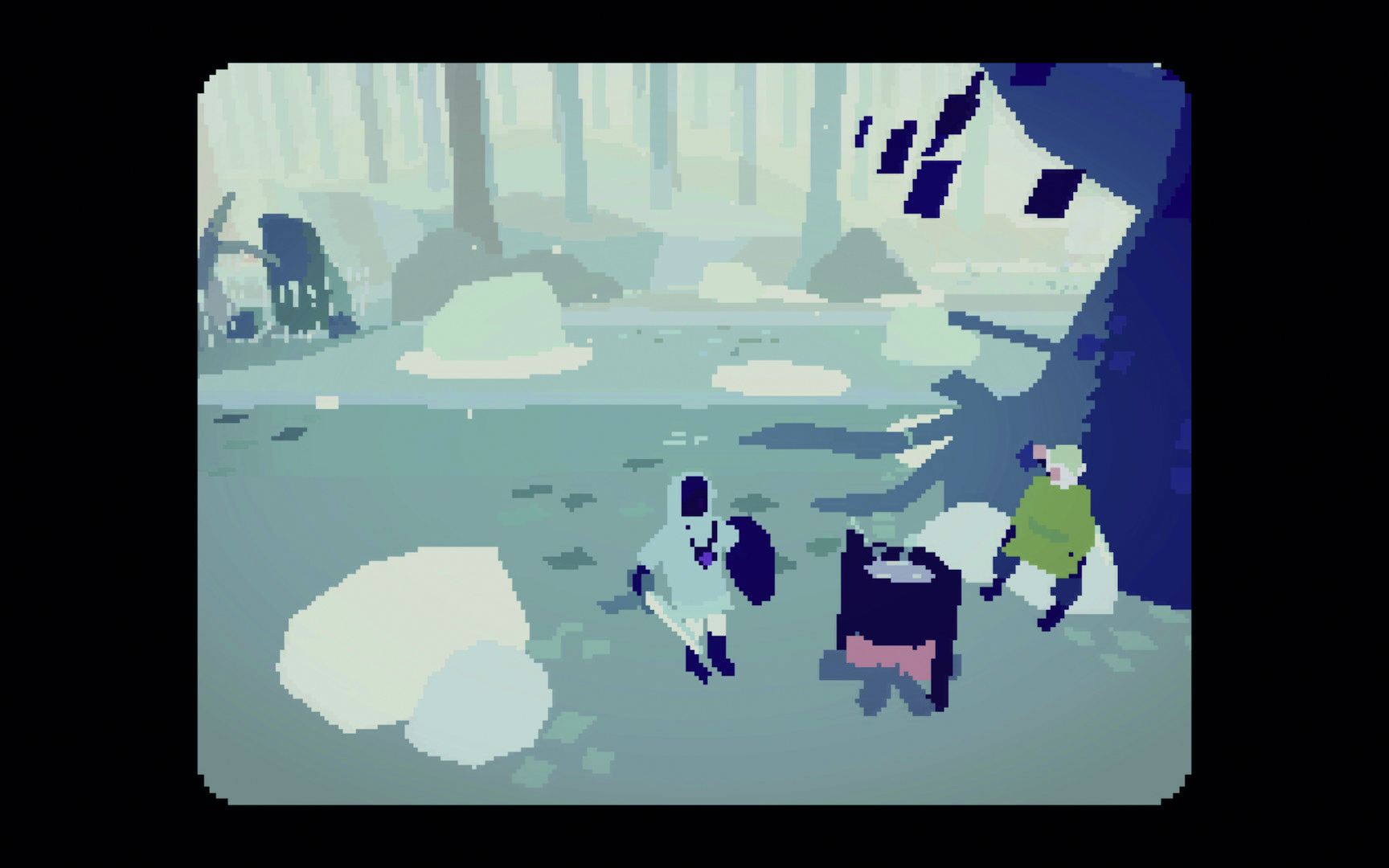
This foggy action-adventure is Dark Souls stripped down to the essentials: fights that kill you, a perpetually unsettling atmosphere, and enough obfuscation to make you feel just the right amount of lost and confused. To stay alive you'll need to be quick on your feet, but you can always heal yourself by sucking up spilled blood. Delicious.
Soko Loco Deluxe
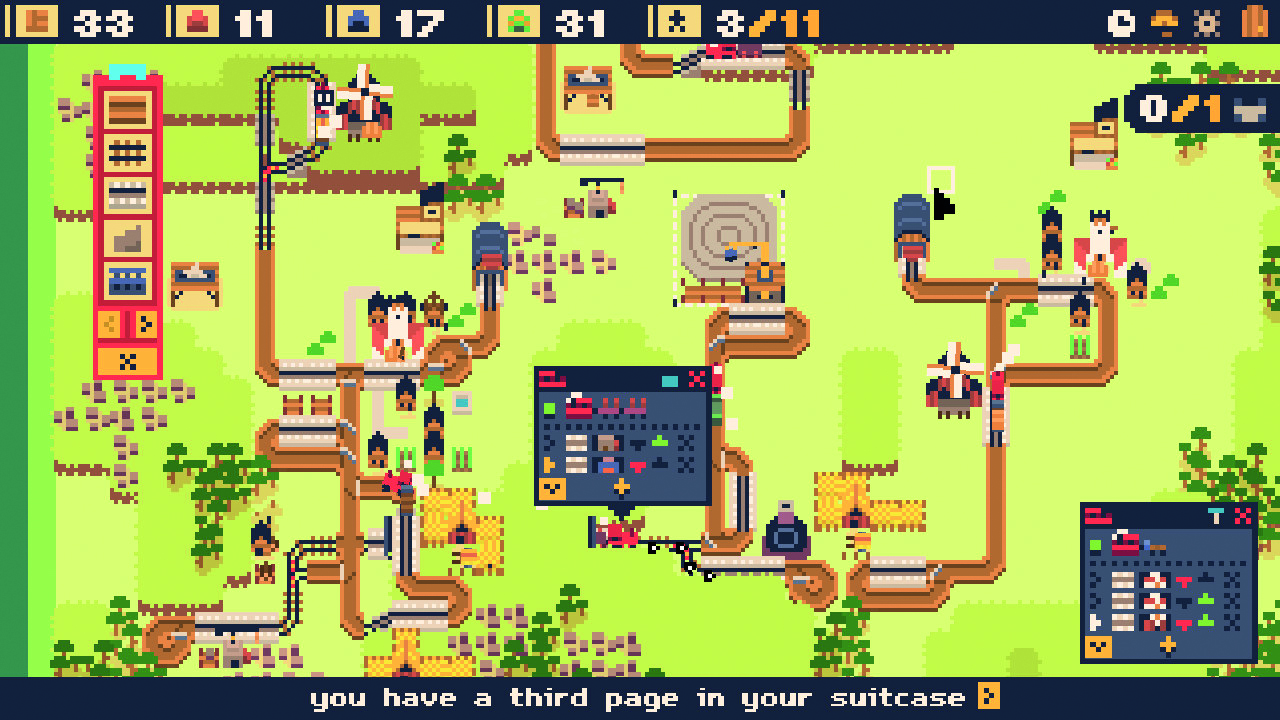
Soko Loco Deluxe is a miniature train tycoon that hides a surprisingly deep management game underneath its cute pixel art aesthetic. Across 20 randomly generated levels—and more, thanks to the scenario editor—you'll have to construct a railway empire, deliver cargo and nurture little towns. It's one of Sokpop's larger games, but it still feels like a bite-sized game you can dip into for 20 minutes.
Sproots
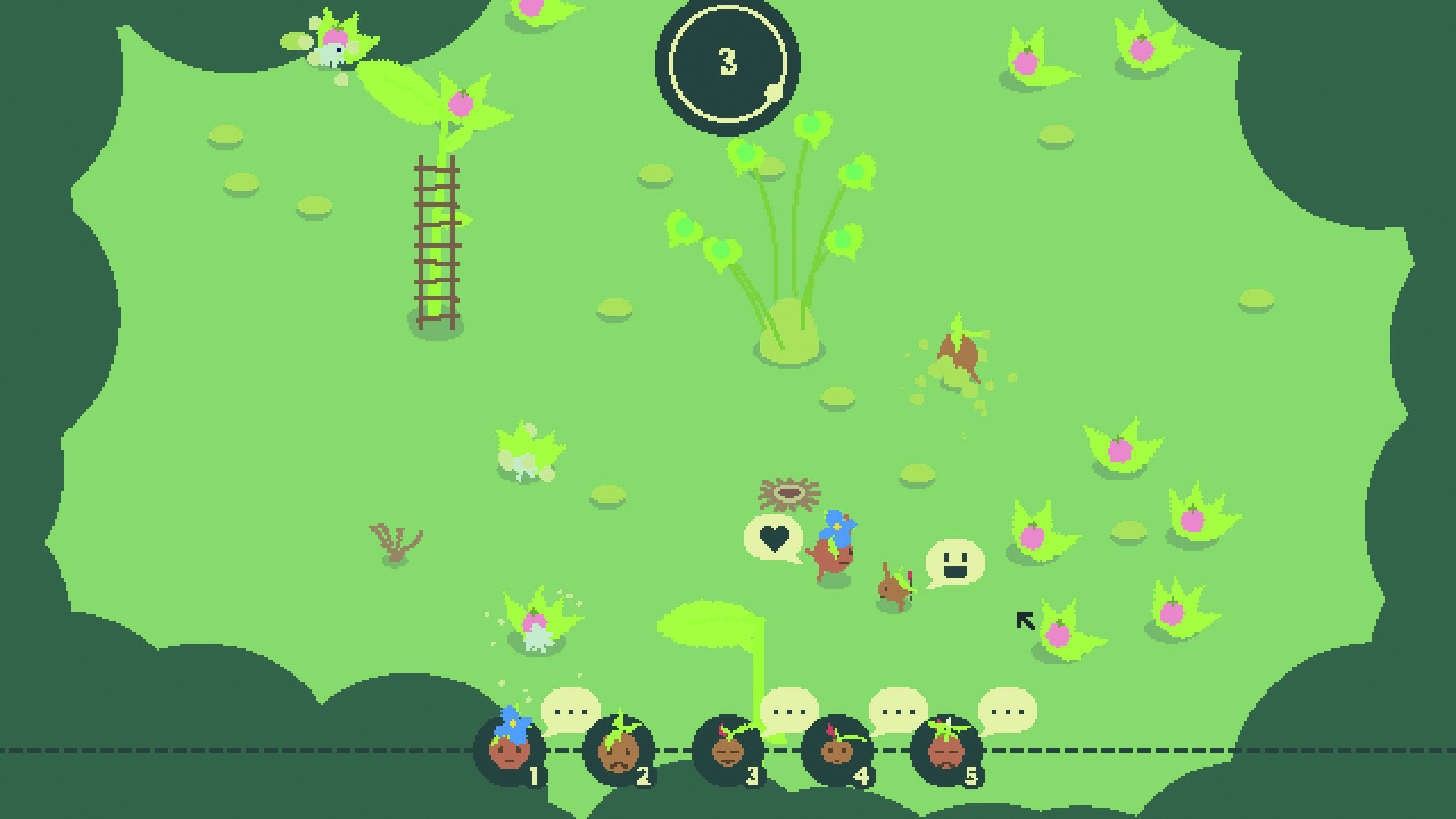
Sproots is a Pikmin-inspired colony sim where you look after adorable plant-people as they develop a little civilisation. I would die for my sproots. They drink dewdrops out of leaves and chirrup away at each other and I love them. If only I could keep them all happy and alive.

Fraser is the UK online editor and has actually met The Internet in person. With over a decade of experience, he's been around the block a few times, serving as a freelancer, news editor and prolific reviewer. Strategy games have been a 30-year-long obsession, from tiny RTSs to sprawling political sims, and he never turns down the chance to rave about Total War or Crusader Kings. He's also been known to set up shop in the latest MMO and likes to wind down with an endlessly deep, systemic RPG. These days, when he's not editing, he can usually be found writing features that are 1,000 words too long or talking about his dog.

